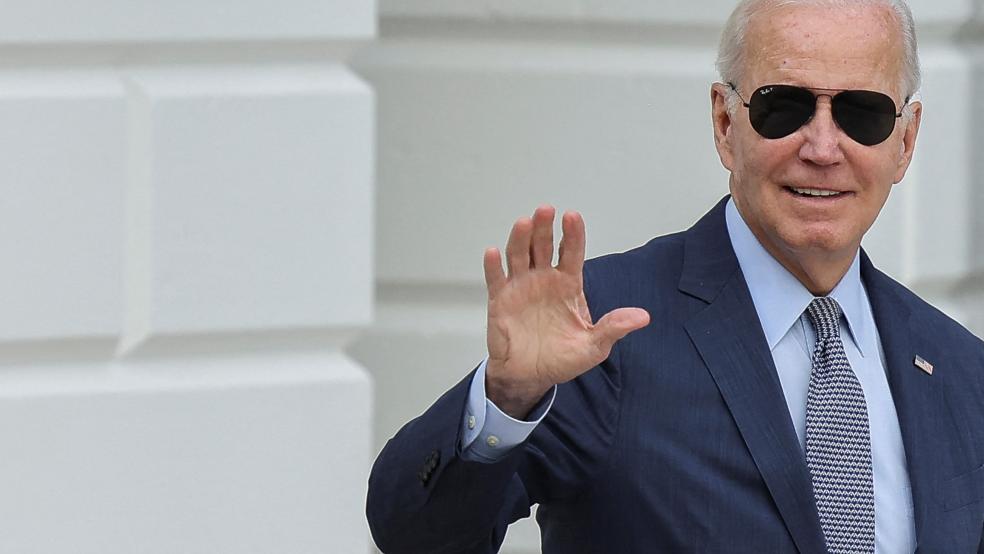President Joe Biden and several top administration officials will be fanning out across the country this week to celebrate the one-year anniversary of the Inflation Reduction Act being signed into law. Biden is set to tout the law in a visit to Wisconsin Tuesday and at a White House event on Wednesday.
What’s in the law: The law, passed by Democrats in party-line votes and signed by Biden on August 16, 2022, included about $500 billion in new spending and tax breaks aimed at boosting clean energy and reducing healthcare costs and prescription drug spending. It also was projected to raise more than $450 billion in new tax revenues and was initially expected to lower the deficit by more than $200 billion over a decade — though that expected savings may not materialize.
How it’s working: A year in, the law is being credited with fueling a surge in new clean energy projects and jobs. “While the biggest impacts of the Inflation Reduction Act (IRA) will begin in 2024 and 2025, its ripple effects are already starting to take shape,” Bank of America said in a recent report. “To date, over 270 new clean energy projects have been announced, with investments totaling $132 billion.” The projects announced so far could create more than 86,000 jobs, according to the report.
Treasury Secretary Janet Yellen on Monday touted both the economic and climate benefits of the law at a labor event in Las Vegas. “Powered by the IRA, the President’s agenda has helped drive a massive boom that is touching every corner of the country,” Yellen said in her prepared remarks. “Since January 2021, companies have committed over $500 billion in manufacturing and clean energy investments. The explosion in U.S. factory construction is a uniquely American story: one that we do not see replicated in other peer countries.”
What’s in a name? One thing the law is not getting credit for: reducing inflation, as per its title. Biden himself lamented the law’s name at an event last week in Salt Lake City, Utah. “The Inflation Reduction Act – I wish I hadn’t called it that, because it has less to do with reducing inflation than it does to do with dealing with providing for alternatives that generate economic growth,” he told donors at a campaign reception, according to a White House transcript. “And so, we're now in a situation where if you take a look at what we're doing in the Inflation Reduction Act, we're literally reducing the cost of people being able to meet their basic needs.”
The bottom line: The administration’s sales effort is politically necessary as Biden aims to convince Americans his economic agenda is working. A year in, Americans don’t know much about the Inflation Reduction Act, one of Biden’s signature legislative accomplishments, which the White House celebrates as “the biggest investment in climate action in history.” More than seven in 10 people say they have heard “little” or “nothing at all” about the law, and 57% say they disapprove of Biden’s handling of climate change, according to a recent Washington Post-University of Maryland poll.





